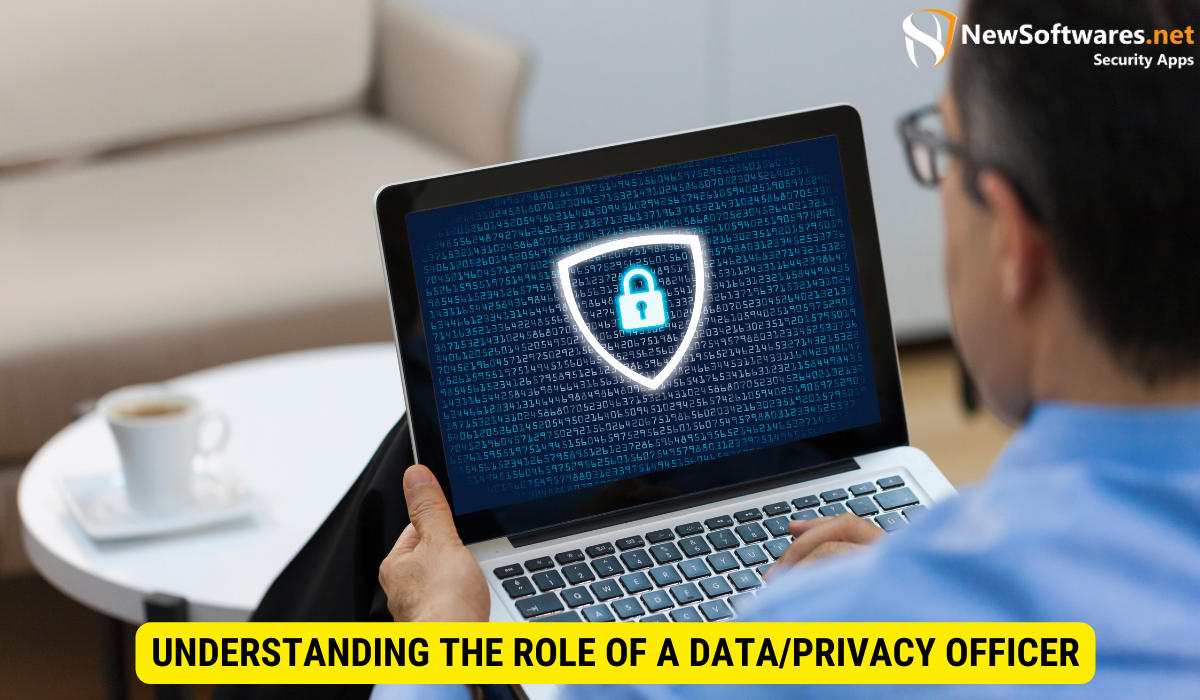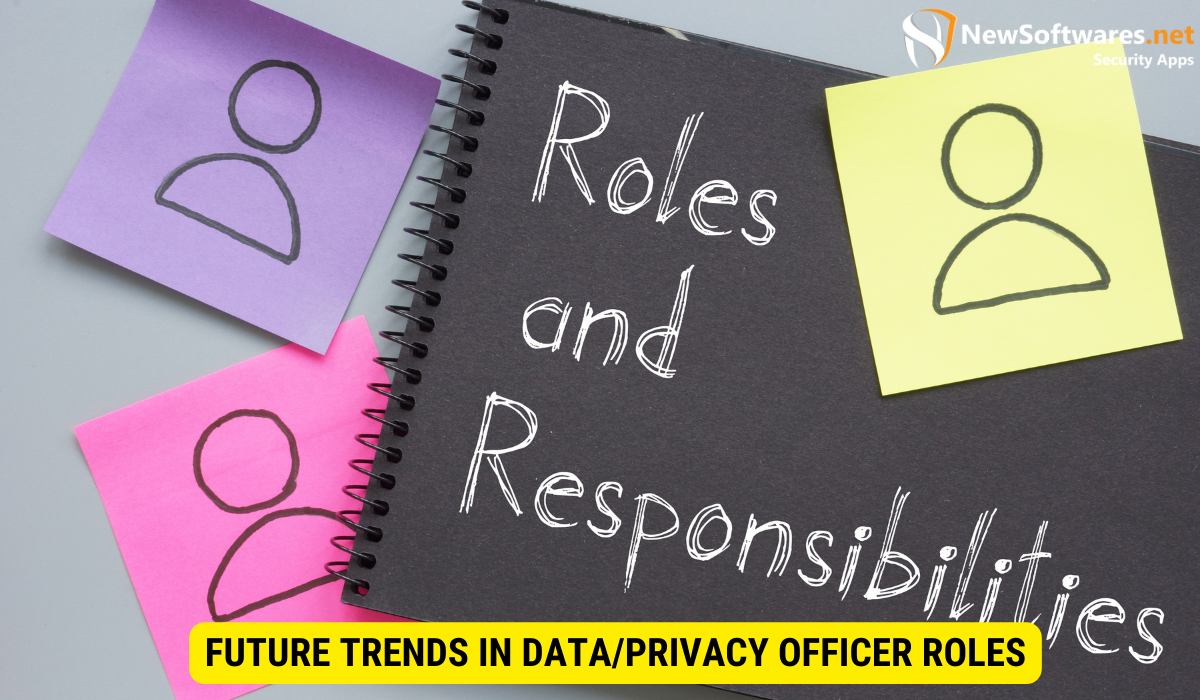A Data/Privacy Officer is responsible for ensuring that an organization complies with privacy laws and manages personal data responsibly. They oversee data protection strategies, ensure the security of sensitive information, and address privacy-related concerns within an organization. Their role is crucial in safeguarding personal data and maintaining trust with customers and stakeholders.
Understanding the Role of a Data/Privacy Officer

A data/privacy officer plays a pivotal role in organizations by ensuring the protection and proper management of data and privacy. They are responsible for overseeing data collection, storage, and usage practices to ensure compliance with privacy laws and regulations. Additionally, data/privacy officers are responsible for managing privacy concerns and protecting sensitive information. Let’s delve deeper into the key responsibilities, required skills, and qualifications of these professionals.
As organizations increasingly rely on data to drive decision-making and improve operational efficiency, the role of a data/privacy officer becomes even more critical. These professionals are at the forefront of safeguarding the privacy rights of individuals and ensuring that organizations handle data responsibly.
Key Responsibilities of a Data/Privacy Officer
Data/privacy officers have several key responsibilities that contribute to the organization’s privacy compliance and information security:
- Data Governance: They establish data governance frameworks and policies to guide the collection, use, and retention of data within the organization. This involves creating guidelines that outline how data should be handled, ensuring that it is accurate, reliable, and secure.
- Privacy Compliance: They ensure full compliance with privacy laws and regulations by regularly reviewing and updating policies and procedures. This includes staying up-to-date with the latest developments in privacy legislation and implementing necessary changes to ensure the organization remains in compliance.
- Data Protection: They implement measures to safeguard sensitive information from unauthorized access, data breaches, or misuse. This involves implementing robust security protocols, such as encryption and access controls, to protect data from potential threats.
- Data Mapping and Inventory: They conduct assessments to identify types of data being collected, processed, and stored, which in turn helps in implementing appropriate controls and procedures. By understanding the organization’s data landscape, data/privacy officers can effectively identify potential privacy risks and develop strategies to mitigate them.
- Training and Education: They educate employees on data privacy best practices and provide guidance on how to handle sensitive information securely. This includes conducting training sessions, creating awareness campaigns, and developing educational materials to ensure that all employees understand their responsibilities when it comes to data privacy.
By fulfilling these responsibilities, data/privacy officers contribute to building a culture of privacy within organizations, where data protection is prioritized and privacy is respected.
Required Skills and Qualifications
In order to excel in the role of a data/privacy officer, certain skills and qualifications are crucial:
- Strong Knowledge of Privacy Laws: Understanding the intricacies of privacy laws is vital to ensure compliance and mitigate privacy risks. Data/privacy officers must stay informed about the legal requirements and regulations that govern the collection, use, and storage of data.
- Expertise in Data Management: They should have a deep understanding of data management, including data governance, data protection, and data privacy frameworks. This expertise allows them to develop and implement effective strategies to manage data in a way that aligns with privacy requirements.
- Analytical and Problem-solving Skills: Data/privacy officers often need to analyze complex privacy issues, assess risk, and develop effective solutions. They must be able to think critically and strategically to address privacy challenges and ensure that the organization’s data practices are compliant and secure.
- Excellent Communication: Effective communication allows data/privacy officers to articulate privacy-related concerns, educate employees, and work closely with stakeholders. They must be able to clearly convey complex privacy concepts to both technical and non-technical audiences, fostering a shared understanding of privacy principles and practices.
- Attention to Detail: Being meticulous helps in identifying potential privacy risks, ensuring compliance, and protecting sensitive information. Data/privacy officers must have a keen eye for detail and be able to spot potential vulnerabilities or weaknesses in the organization’s data management processes.
By possessing these skills and qualifications, data/privacy officers can effectively navigate the complex landscape of data privacy and contribute to building trust with customers, partners, and stakeholders.
The Importance of a Data/Privacy Officer in an Organization
Data/privacy officers play a critical role in ensuring organizations respect and protect individuals’ privacy. Let’s explore some of their core functions and why they are indispensable in today’s digital landscape.
Ensuring Compliance with Privacy Laws
One of the primary responsibilities of a data/privacy officer is to ensure compliance with privacy laws and regulations. They keep up-to-date with evolving legislation and develop and implement policies and procedures that align with these legal requirements. By doing so, organizations can avoid potential legal consequences, reputational damage, and loss of customer trust.
Privacy laws vary across different jurisdictions, and staying informed about these regulations is crucial for data/privacy officers. They continuously monitor changes in privacy legislation and assess their impact on the organization’s operations. This includes understanding the intricacies of data protection regulations, such as the General Data Protection Regulation (GDPR) in the European Union, the California Consumer Privacy Act (CCPA) in the United States, and the Personal Information Protection and Electronic Documents Act (PIPEDA) in Canada.
Moreover, data/privacy officers collaborate with legal teams to ensure that the organization’s practices align with the requirements of privacy laws. They conduct regular audits to assess compliance and identify areas for improvement. By taking a proactive approach to privacy compliance, data/privacy officers help organizations maintain a strong legal standing and build trust with their stakeholders.
Protecting Sensitive Information
As custodians of sensitive data, data/privacy officers are responsible for implementing safeguards that protect information from unauthorized access, disclosure, or alteration. They establish procedures for data classification, encryption, access controls, and data breach response. By proactively addressing privacy concerns, these officers mitigate the risk of data breaches and safeguard sensitive information.
Data/privacy officers work closely with IT departments to ensure that appropriate security measures are in place. They oversee the implementation of robust firewalls, intrusion detection systems, and encryption protocols to protect data from external threats. Additionally, they establish internal controls to prevent unauthorized access to sensitive information, such as implementing multi-factor authentication and role-based access controls.
In the event of a data breach, data/privacy officers play a crucial role in incident response. They develop and test incident response plans, which include procedures for containing and mitigating the impact of a breach, notifying affected individuals, and cooperating with regulatory authorities. By having a well-prepared data/privacy officer, organizations can minimize the damage caused by a data breach and maintain the trust of their customers.
Furthermore, data/privacy officers educate employees about the importance of data protection and privacy. They conduct training sessions to raise awareness about best practices for handling sensitive information, such as avoiding phishing scams, using strong passwords, and securely disposing of data. By fostering a culture of privacy within the organization, data/privacy officers empower employees to become active participants in safeguarding data.
The Day-to-Day Tasks of a Data/Privacy Officer
Data/privacy officers have a wide range of tasks to handle on a daily basis. Let’s explore a couple of their key responsibilities:
Monitoring Data Management Activities
Data/privacy officers are responsible for monitoring the organization’s data management activities to ensure compliance with privacy policies and procedures. They review data collection practices, data transfers, and data retention processes to identify any issues or risks. Regular audits and assessments help maintain data privacy and security.
Conducting Privacy Impact Assessments
Privacy impact assessments (PIAs) are integral to the work of a data/privacy officer. These assessments identify and assess the potential privacy risks of a project or system and recommend measures to mitigate those risks. Data/privacy officers collaborate closely with project teams to conduct thorough PIAs, ensuring privacy by design and minimizing privacy risks.
Challenges Faced by Data/Privacy Officers
Data/privacy officers encounter various challenges in their roles. Let’s take a look at a couple of common challenges:
Keeping Up with Changing Regulations
Privacy laws are constantly evolving, and staying up-to-date with changing regulations is a challenge for data/privacy officers. They must remain vigilant to ensure compliance and make necessary adjustments to policies and procedures as laws change. Continuous learning and participation in privacy-related conferences and workshops help them stay informed.
Addressing Data Breaches
Dealing with data breaches is a significant challenge for data/privacy officers. They must develop effective incident response plans, coordinate with internal teams and external experts, and provide timely notifications to affected individuals and authorities. Quick and effective action is crucial to mitigate the impact of a breach and uphold the organization’s reputation.
Future Trends in Data/Privacy Officer Roles

Data/privacy officer roles continue to evolve alongside technological advancements and changes in privacy landscapes. Here are a few future trends that will shape this role:
The Impact of Technology on Data Privacy
As technology rapidly evolves, new challenges arise for data/privacy officers. Emerging technologies like artificial intelligence, blockchain, and Internet of Things (IoT) require careful consideration of the associated privacy risks. Data/privacy officers need to stay ahead of these developments and ensure that data protection measures keep pace with technological advancements.
The Growing Demand for Data/Privacy Officers
With the increasing importance placed on data privacy, organizations across industries are recognizing the need for dedicated data/privacy officers. The demand for professionals with expertise in privacy governance, compliance, and risk management is on the rise. This presents significant career opportunities for individuals looking to work in this field.
Key Takeaways
- Data/privacy officers are responsible for overseeing data collection, storage, and usage practices, ensuring compliance with privacy laws.
- They protect sensitive information and implement measures to safeguard data from breaches and unauthorized access.
- Data/privacy officers monitor data management activities and conduct privacy impact assessments.
- Challenges include keeping up with changing regulations and addressing data breaches.
- The future will see a greater focus on the impact of technology on data privacy and an increased demand for data/privacy officers.
FAQs
What are the core duties of a data/privacy officer?
Data/privacy officers are responsible for ensuring compliance with privacy laws, protecting sensitive information, and monitoring data management activities.
What skills are essential for a data/privacy officer?
Key skills for data/privacy officers include a strong knowledge of privacy laws, expertise in data management, analytical and problem-solving skills, excellent communication, and attention to detail.
How do data/privacy officers address data breaches?
Data/privacy officers address data breaches by developing incident response plans, coordinating with internal teams and experts, and providing timely notifications to affected individuals and authorities.
How does technology influence the role of data/privacy officers?
Technology impacts the role of data/privacy officers by introducing new privacy risks and challenges. Data/privacy officers must stay informed and ensure data protection measures keep pace with technological advancements.
Is there a growing demand for data/privacy officers?
Yes, the growing importance of data privacy has led to an increased demand for data/privacy officers across industries.
Conclusion
Data/Privacy Officers play a vital role in the modern digital landscape, where protecting personal data is paramount. Their expertise in legal compliance, risk management, and data security strategies is essential in ensuring that organizations handle personal data ethically and responsibly. As guardians of data privacy, they are critical in maintaining trust and integrity in organizational data practices.
